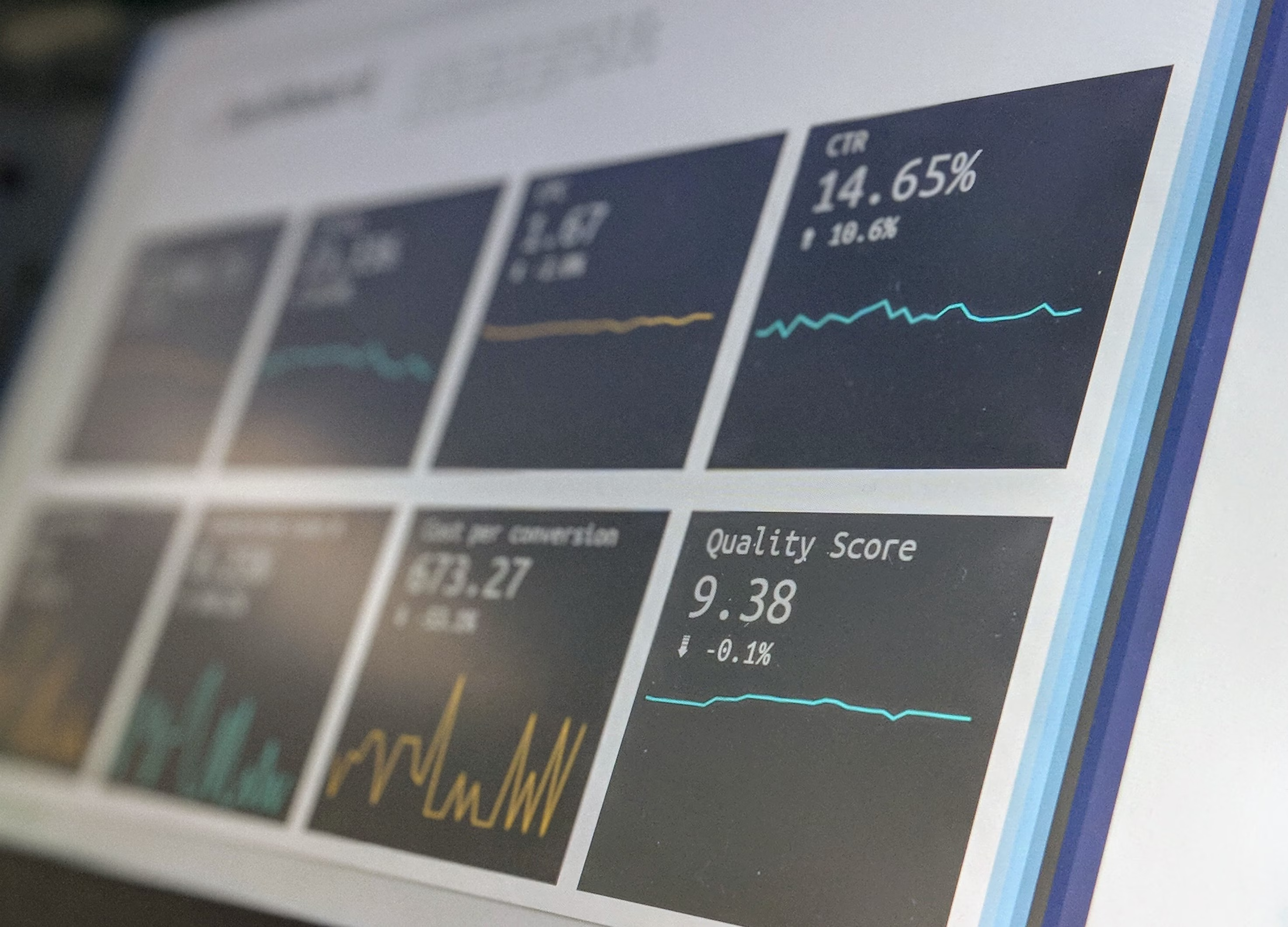Data-driven marketing transforms raw data into actionable insights, helping businesses like yours make smarter, more impactful decisions. It takes every click, swipe, and interaction and transforms those data points into improved return on investment (ROI) and higher performance metrics.
Amazing, right? Data-driven marketing strategy sounds like everything you’ve ever hoped and wished for. But it takes expertise and a solid data architecture to get the information and insights you’re craving. In this article, LaFleur Marketing explains the essentials of data-driven marketing and how it could revolutionize your marketing efforts.
Marketing data is powerful, but often overwhelming
Big data and artificial intelligence are changing how businesses learn, set goals, and build strategies. Today, your customer data is essential to how you do business. You’re already compiling remarkable amounts of marketing data from social media, website analytics, customer feedback, and more. By collecting and analyzing this data, marketers can gain valuable insights into customer behavior, preferences, and needs.
But you’re probably not leveraging your marketing data to its full potential. According to Oracle 97% of people want to make data-driven decisions, but 72% feel so overwhelmed by the data that they freeze up. Analysis paralysis is real and often one of a company’s biggest pain points.
So, offering a slick “data-driven marketing” tool isn’t enough. You need a system that helps you centralize data, interpret all your disparate data points, and identify trends and opportunities.
A well-built marketing analytics program meets the following criteria:
- Data collection and architecture: Garbage in, garbage out. Your data management and storage needs to be as robust as your analytics tools.
- Omnichannel: Your analytics tools should help you pull information from multiple platforms and turn those data points into insights that drive growth and improve your ROI.
- Easy to use: You shouldn’t need a degree in data science to navigate your analytics tools.
- Strategic sense making: You should be able to translate those insights into action items that improve your customer journey, reduce your marketing spend, and increase customer acquisition.
RELATED: How to grow a law firm using data: Leveraging law firm KPIs
What is data-driven marketing, and how can it revolutionize your business?
At its core, data-driven marketing is about using data to make informed decisions that enhance your marketing campaigns. Instead of relying on gut feelings or traditional methods, we use data to understand your audience, predict trends, and optimize marketing campaigns. This approach ensures that every marketing dollar is spent effectively, leading to better results.
Imagine knowing exactly what your customers want before they even tell you. With data-driven marketing, this isn’t just a dream—it’s a reality.
Let’s dive into how a data-driven approach (with the right tools) can result in a clearer roadmap for marketing, empower better spending decisions, and refine strategies based on real-time data to drive results and revenue.
Suppose you run pay-per-click advertising and display ads across multiple platforms, including Google Ads, Bing Ads, Facebook, and Instagram. A well-built data analytics solution, like LaFleur Core Insights, can help you identify which platforms and messages resonate the most with your audience. And you can track consumers across the life of the lead, following them from their first click to conversion and beyond.
Similarly, you can leverage your marketing data to identify which products or services are most popular, what website content resonates with your audience, and which marketing channels drive the most conversions.
How data-driven marketing drives growth
- More transparency: So many marketing reports are filled with jargon and irrelevant metrics. With data-driven marketing, you can drill down into granular data, ask better questions of your marketing teams, and identify opportunities and issues early on.
- Precision targeting: Understand who your ideal customers are, what they like, and how they prefer to interact with your brand. Data-driven marketing allows you to segment your audience with precision, ensuring your messages hit the right people at the right time.
- Enhanced customer experience: When you understand your customers’ journey and preferences, you can create personalized experiences that resonate. From personalized messaging to targeted ads, data helps you deliver relevant content that keeps your audience engaged and loyal.
- Improved ROI: By analyzing the performance of your campaigns, you can identify what works and what doesn’t. Then, you can allocate your budget more effectively, maximizing your return on investment and reducing wasted spend.
- Fast failure: If your data-driven marketing partner leverages consumer data and audience insights, you can test messaging and products before they go to market, improving your campaigns’ performance later on.
- Predictive insights: Data isn’t just about looking back; it’s also about looking forward. Predictive analytics can help you anticipate future trends, customer behaviors, and market shifts, giving you a competitive edge.
RELATED: How AI psychopaths and real-time data can strengthen your human leadership
How to implement data-driven marketing strategy
Implementing a data-driven strategy isn’t a one-step process. It requires a strong foundation, training, and effective tools.
- Collect the right customer data: Start by gathering customer data from various sources such as website analytics, social media, email campaigns, CRM systems, and more. The key is to collect data that is relevant and useful for your marketing goals.
- Create the right data architecture: Make sure you’re warehousing your data in a way that is easy for your analytics applications to interpret and process. You also need to consider consumer privacy laws and other regulatory compliance issues from the get-go.
- Train your teams: Assess your internal and external teams’ data literacy. If they have never visited Google Analytics or are uncomfortable analyzing KPIs, now is the time to upskill them. (You can also look for tools and partnerships that help you make sense of your data.)
- Analyze and interpret with data-driven marketing tools: Use data-driven marketing tools to make sense of the data. Look for patterns, trends, and insights that can inform your strategy. The goal is to turn raw data into actionable intelligence.
- Measure and optimize: Continuously monitor the performance of your campaigns. Use key performance indicators (KPIs) to measure success and identify areas for improvement. Optimization is an ongoing process that ensures your marketing remains effective and relevant.
One way to streamline your transition to data-driven marketing is by leveraging a data analytics dashboard like LaFleur Core Insights.
LaFleur Core Insights: AI-powered dashboards that make the complex simple
LaFleur has embraced data-driven marketing since our founding almost ten years ago. But our AI-powered dashboard platform, LaFleur Core Insights, democratizes big data. Now, you don’t need to wait for a reporting session with your marketing strategist to get answers and insights into your digital marketing KPIs.
- Seamless platform integration: Connect your marketing systems and CRM to LaFleur Core Insights, bringing all your data together in one unified hub. (Curious if your CRM is compatible with our dashboards? Check out our list of supported CRMs [link].)
- Clear KPI overview: Get a clear, high-level overview of your key performance indicators, with the flexibility to explore detailed metrics whenever needed.
- Intelligent AI assistance: Our AI assistant can analyze data and uncover insights and trends, empowering data-based decision. (This is an optional, add-on feature.)
And when you have questions about your marketing strategy, you can reach out to our experts for answers and help with campaigns.
Are you ready to get clear answers to your marketing questions?
Data-driven marketing is no longer a luxury; it’s a necessity in today’s competitive landscape. With data-informed marketing strategies, you can achieve greater precision, enhance customer experiences, and drive better results. It enables marketers to deliver personalized messages, understand their customers better, improve user experience, and make informed decisions by leveraging data and technology. And as technology continues to evolve, the opportunities for data-driven marketing will only expand, offering even more ways to connect with your audience and achieve your business goals.
LaFleur Marketing believes in the power of data to transform your marketing efforts. Whether you’re just starting with data-driven marketing or looking to enhance your existing strategies, we’re here to help you navigate the journey. Let’s harness the power of data together and drive real results.
If you’re ready to see LaFleur Core Insights for yourself, call us at (888) 222-1512 or complete our online form.
References
Global Study: 70% of Business Leaders Would Prefer a Robot to Make Their Decisions. (2023, April 19). Oracle. Retrieved from https://www.prnewswire.com/news-releases/global-study-70-of-business-leaders-would-prefer-a-robot-to-make-their-decisions-301799591.html#:~:text=LONDON%20and%20AUSTIN%2C%20Texas%2C%20April,more%20decisions%20than%20ever%20before.





